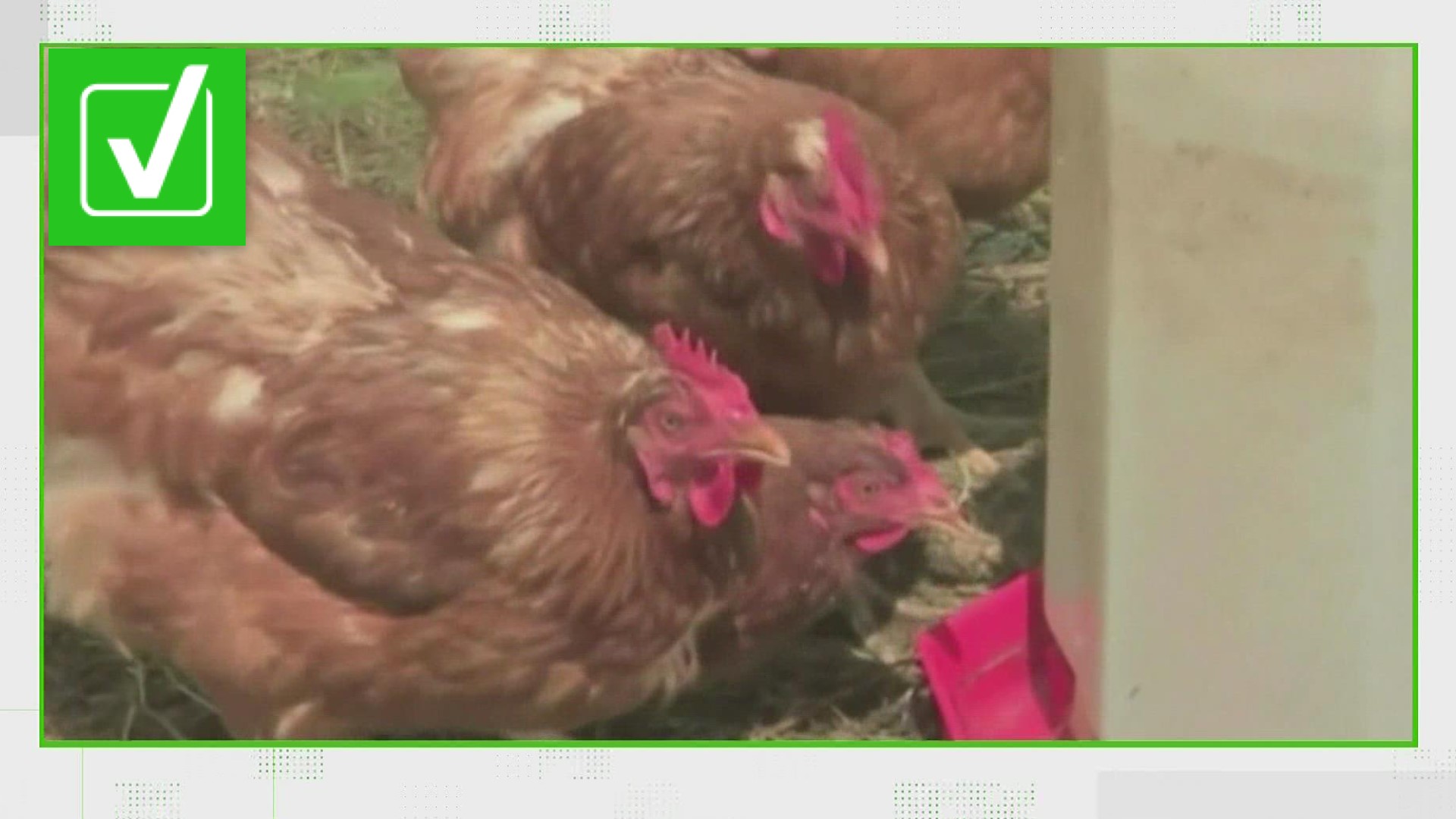ATLANTA — Bird flu cases are surging in the U.S., spreading to more than 30 states, and one 11Alive viewer wanted to know whether she should be worried when it comes to her pets at home?
THE QUESTION
Can avian influenza infect dogs and cats?
THE SOURCES
THE ANSWER
It's true that this strain of bird flu could potentially infect dogs or cats, but experts say the risk is low, and no cases in cats or dogs have been reported in the United States to date.
WHAT WE FOUND
It's called H5N1, commonly referred to as bird flu, and the virus spreads easily through birds infecting the animal's saliva, mucus, and feces.
However, experts confirm bird flu very rarely transmits to humans, and according to the Centers for Disease Control and Prevention, the risk to the general public is low. Our sources all agree that the same holds true for dogs and cats.
"The risk of a dog or a cat contracting this disease in the U.S. is very low," Dr. Arce, President of the American Veterinary Medical Association, told the Verify team.
A spokesperson for the USDA's Animal and Plant Health Inspection Service reiterated the same, saying in a statement, "H5N1 infection in dogs and cats is extremely rare, and has not been reported in the United States."
Because viruses constantly change, Dr. Arce said the USDA and veterinarians do monitor for potential mutations and would alert pet owners of any changes.
As a precaution, the USDA's APHIS advises that dogs and cats should not have contact with infected poultry or dead animals.
"Dogs and cats should not be allowed to have contact with infected poultry or carcasses, not only to protect the pet but to prevent them from spreading the virus to other poultry flocks," a statement to the Verify team reads. "In areas where wild bird die-offs are occurring, cats should be kept inside and dogs kept on leash to avoid contact with sick or dead birds."
In addition, the Georgia Department of Agriculture said there are general practices for pet owners to take at home to ensure pets stay healthy:
- Keep food covered and stored securely
- Provide access to fresh water, and regularly clean food and water bowls
- Prevent your pets from contacting wild birds and poultry.
Experts advise discussing any concerns you may have about the health of your pets with your veterinarian.

